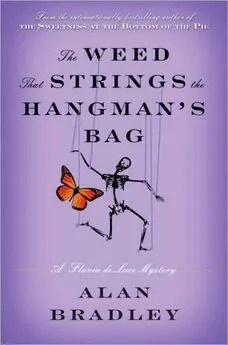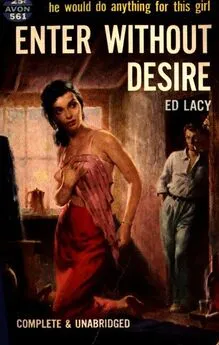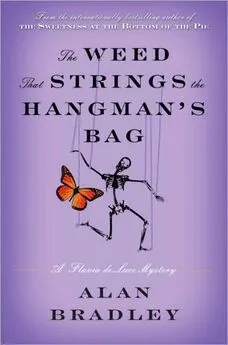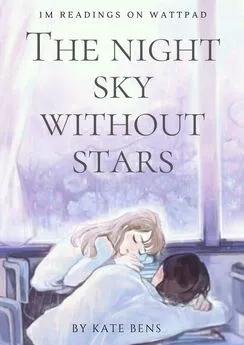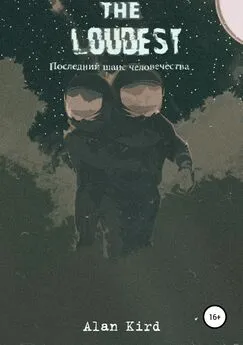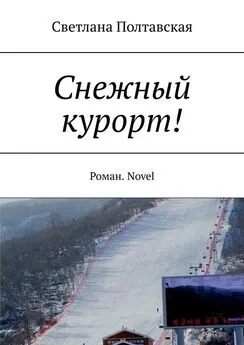Alan Bradley - A Red Herring Without Mustard: A Flavia de Luce Novel
- Название:A Red Herring Without Mustard: A Flavia de Luce Novel
- Автор:
- Жанр:
- Издательство:неизвестно
- Год:неизвестен
- ISBN:нет данных
- Рейтинг:
- Избранное:Добавить в избранное
-
Отзывы:
-
Ваша оценка:
Alan Bradley - A Red Herring Without Mustard: A Flavia de Luce Novel краткое содержание
A Red Herring Without Mustard: A Flavia de Luce Novel - читать онлайн бесплатно полную версию (весь текст целиком)
Интервал:
Закладка:
“It was at the Palings, incidentally, that I once asked the lovely Letitia Humphrey for her hand in holy matrimony—and it was at the Palings that Letitia had the jolly good sense to say no.”
“I’ll bet she lived to regret it,” I said gallantly.
“She lived—but without remorse. Letitia went on to marry a man who made a fortune adulterating wheat flour with bone dust. I am given to understand that they made each other very happy.”
A cloud of tobacco smoke made his sigh suddenly visible in the damp air.
“Did you regret it?” I asked. It was not a polite question, but I wanted to know.
“Although I scale the Jack o’Lantern no more,” he said, “it is not entirely because of my infirmities, but rather because of the increasingly great sadness that is visible from the summit—a sadness which is not nearly so noticeable from the lower altitudes.”
“The Palings?”
“There was a time when I loved to gaze down upon that ancient crook in the river as if from the summit of my years. In fact, I was doing so on that day in April, two and a half years ago, when the Bull baby disappeared.”
My mouth must have fallen open.
“From my vantage point, I saw the Gypsy leave her encampment—and later, saw Mrs. Bull pushing the baby’s perambulator along the Gully.”
“Hold on,” I said. “Surely it was the other way round?”
“It was as I have described. The Gypsy woman hitched her horse and drove her caravan north along the Gully. Sometime later, the Bull woman appeared, wheeling her baby south towards the Palings.”
“Perhaps the pram was empty,” I ventured.
“An excellent point,” Dr. Kissing said, “except for the fact that I saw her lift out the infant whilst she retrieved its lost bottle from the blankets.”
“But then Fenella couldn’t have kidnapped the baby.”
“Very good, Flavia. As you may have perceived, I’ve long ago come to that same conclusion.”
“But—”
“Why did I not inform the police?”
I nodded dumbly.
“I have asked myself that, again and again. And each time I have answered that it was, in part, because the police never asked me. But that will hardly do, will it? There is also the undeniable fact that when one reaches a certain age, one hesitates to take on a new cargo of trouble. It is as if, having experienced a certain amount of grief in a lifetime, one is given pass-slip to hand in to the Great Headmaster in the Sky. Do you understand?”
“I think I do,” I said.
“That is why I have kept it to myself,” he said. “But oddly enough, it is also the reason that I am now telling you.”
The silence between us was broken only by the sound of the falling rain.
Then suddenly, from across the lawn, there came a shout: “Dr. Kissing! Whatever are you thinking?”
It was the White Phantom, the same nurse I had seen on my previous visit to Rook’s End, now looking ludicrous in her white uniform and huge black galoshes as she came galumphing across the grass towards us through the falling rain.
“Whatever are you thinking ?” she asked again as she stepped beneath the umbrella. I’ve observed that domineering people like the White Phantom often say everything twice, as though they’re on a quota system.
“I am thinking, Nurse Hammond,” Dr. Kissing said, “of the sad decline in English manners since the late war.”
His words were met with a silent sniff as she seized the handles of his wheelchair and shoved off rapidly with it across the lawn.
As she paused to open the conservatory door, Dr. Kissing’s words came floating back to my ears—
“Tally-ho, Flavia!”
It was a call to the hunt.
I waved like mad to show him that I had understood, but it was too late. He had already been wheeled indoors and out of sight.
 TWENTY-TWO
TWENTY-TWO 
I THINK THERE MUST be a kind of courage that comes from not being able to make up your mind.
Whether it was this or whether it was Gladys’s willfulness I can’t be sure, but there we were, suddenly swerving off the main road and into the Gully.
I had been going here and there about the village, avoiding the unpleasant Mrs. Bull in much the same way as a housefly avoids the folded newspaper. But the Gully was a shortcut home to Buckshaw, and there was no time like the present.
Although Gladys’s black paint was now spattered with mud, she seemed as frisky as if she had just been curried with a bristled brush and wiped down to perfection. Her nickel handlebars, at least, glittered in the sun.
“You’re enjoying this, aren’t you, old girl?” I said, and she gave a little squeak of delight.
Would Mrs. Bull be standing guard at her gate? Would I have to pretend again to be Margaret Vole, niece of that fictional—but beloved—old character actress, Gilda Dickinson?
I needn’t have worried. Mrs. Bull was nowhere in sight, although the hovering smoke from the rubbish heaps made it difficult to see much of the property.
Her redheaded boy—the one who had been perched in the branches when I rode through the Gully with Fenella—was now sitting in the ditch at the edge of the road, digging his way to China with a piece of cutlery.
I brought Gladys to a slithering stop and put both feet on the ground.
“Hello,” I said, rather stupidly. “What’s your name?”
It was not the most brilliant opening, but I wasn’t accustomed to talking to children, and hadn’t the faintest idea how to begin. It didn’t matter anyway, because the little wretch ignored me and went on with his excavating.
It was difficult to judge his age, which might have been anywhere between four and seven. His large head wobbled uneasily atop a spindly body, giving the impression that one was looking at rather a large baby or a small adult.
“Timofey,” he said in a froggy croak, just as I was about to shove off.
“Timothy?”
There was another awkward pause, during which I shifted uneasily from foot to foot.
“Timofey.”
“Is your mother at home, Timofey?” I asked.
“Dunno—yes—no,” he said, giving me a wary sideways glance, and he returned to his digging, stabbing fiercely at the soil with his bit of tableware.
“Digging for treasure, are you?” I asked, going all chummy. I leaned Gladys against a bank and climbed down into the ditch. “Here, let me help.”
I casually worked my hand into my off-side pocket and closed my fingers around a stick of horehound.
With a quick darting motion, I reached down into the hole he was digging, and pretended to extract the sweet.
“Oh, Timofey!” I cried, clapping my hands. “Look what you’ve found! Good boy! Timofey’s found a sweet!” Although it jarred, I couldn’t bring myself to call him by any name other than the one he called himself.
As I held out the horehound, he snatched it away from me with a lightning-fast movement and shoved it into his mouth.
“Preasure!” he said, gnawing nastily.
“Yes, treasure,” I cooed. “Timofey’s found buried treasure.”
With the horehound stick jutting out of the corner of his mouth like a sickroom thermometer, Timofey put down his digging implement and attacked the hole with his bare hands.
My heart gave a leap as my mind registered what now lay exposed in the dirt: the silver … the prongs … the figure of the lobster punched from the handle … the de Luce monogram …
The child was digging with one of the de Luce lobster picks! But how could that be? Dogger had already shipped the silver to Sotheby’s for auction and the only piece that had been overlooked, perhaps, was the one that had been used to put paid to Brookie Harewood. And that, unless I was sadly mistaken, had, until quite recently, been shoved up Brookie Harewood’s nostril and into his brain. How could it possibly have made its way from there into the hands of an urchin grubbing in the Gully? Or could this be a copy?
“Here,” I said. “Let me help you. I’m bigger. I can dig faster. Find more sweets.”
I made digging motions with my hands, scooping like a badger.
But Timofey snatched up the lobster pick, and was holding it away from me.
“Mime!” he said around the horehound. “Mime! Timofey foumd it!”
“Good boy!” I said. “Let’s have a look.”
“No!”
“All right,” I said. “I don’t want to see it anyway.”
If there’s anyone on earth who knows the ways of a child’s mind , I thought, it’s me—Flavia de Luce —for I had not so long ago been one myself.
As I spoke, I reached into my pocket and extracted another stick of horehound—this one, my last. I gazed at it fondly, held it up to the sunlight to admire its golden glow, smacked my lips—
“Give over!” the child said. “I wants it!”
“Tell you what,” I told him. “I’ll trade you for that nasty digger. You don’t want that old thing. It’s dirty.”
I pulled a horrid face and went through the motions of retching, sound effects and all.
He grinned, and inserted the prongs of the lobster pick into one of his nostrils.
“No, Timofey!” I said in the most commanding voice I could summon. “It’s sharp—you’ll hurt yourself. Give it here.
“At once!” I added sternly, putting on the voice of authority, as Father does when he wants to be instantly obeyed. I held out my hand and Timofey meekly laid the silver lobster pick across my lifeline—the very part of my hand that the Gypsy—Fenella—was it only three days ago?—had held in her own and told me that in it she saw darkness.
“Good boy,” I said, my head swimming as my fingers closed upon the murder weapon. “Where did you get it?”
I handed him the horehound stick and he grabbed it greedily. I shoved my hand into my empty pocket, as if I were digging into a bottomless bag of sweets.
I locked my eyes with his, noticing, for the first time, the strange transparency of his irises. I would not look away, I thought—not until—
“Danny’s mocket,” he said suddenly, his words oozing out around the sticky horehound.
Danny’s mocket? Danny’s pocket , of course! I was proud of myself.
But who was Danny? It couldn’t be the baby—the baby wasn’t old enough to have pockets. Did Mrs. Bull have an older son?
My mind was buzzing with possibilities as I shoved the lobster fork into my pocket. It was a mistake.
“Mam!” the child shrieked, “Mam! Mam! Mam! Mam! Mam!” each cry louder and higher in pitch.
I scrambled out of the ditch and made for Gladys.
“Mam! Mam! Mam! Mam! Mam!”
The little rotter had been set off like a blasted alarm.
“You!” came a voice from out of the smoke, and suddenly Mrs. Bull was coming towards me, lumbering through the smoldering heaps like something out of a nightmare.
“You!” she shouted, her raw arms already extended, ready to seize me. Once she laid hands on me, I knew, I was done for. The woman was big enough to tear me apart like a bundle of rotten rags.
I grabbed at Gladys and pushed off, my feet slipping wildly from the pedals as I threw myself forward, trying to put on speed.
Oddly enough, I was thinking quite clearly. Should I try to divert her by shouting “Fire!” and pointing at her house? Since the place was surrounded by smoldering rubbish heaps, it seemed both a good and a bad idea.
But it was no time for tactics—Mrs. Bull was bearing down upon me with alarming speed.
Читать дальшеИнтервал:
Закладка:

